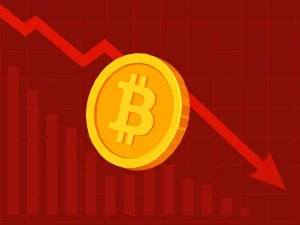Ranking of Governments’ Bitcoin Holdings

Global governments, not just retail investors and institutions, are embracing Bitcoin as part of their portfolios. Notably, the United States government stands as the foremost Bitcoin holder, with an impressive stash exceeding 213,297 BTC. Interestingly, a significant portion of these digital assets originates from confiscated cryptocurrencies linked to criminal enterprises. This revelation underscores the government’s active role in the crypto sphere, beyond mere regulation, actually holding significant amounts of Bitcoin, often acquired through law enforcement actions.
- Governments’ Bitcoin Holdings: How Much Do They Own?
- First place: United States
- Second place: China
- Third place: United Kingdom
- Fourth place: EI Salvador
- Fifth place: Ukraine
- Sixth place: Germany
- Implications of Government Asset Holdings
- Governments Investing in Bitcoin: Should They?
- Approach Refined
Governments’ Bitcoin Holdings: How Much Do They Own?
As of July 29, 2024, governments worldwide collectively own 2.6% of Bitcoin’s total circulating supply, equivalent to 471,380.6 BTC and valued at $32.7 billion. Governments are acquiring more Bitcoin, often through seizures from criminal enterprises or donations, or by direct purchase. This shift underscores the escalating significance and acknowledgement of digital currencies within the global financial framework, indicating a broader acceptance and integration of cryptocurrencies in mainstream finance.
First place: United States
The holds the largest amount of Bitcoin, with 213,297 BTC acquired through various cryptocurrency seizures. Currently, the value of these U.S. Bitcoin holdings stands at approximately $14.82 billion. A notable chunk of this stash originated from the shutdown of Silk Road, a notorious online black market that was one of the first modern darknet markets. During the U.S. government’s dismantling of Silk Road, they seized approximately 69,000 BTC, significantly adding to their cryptocurrency reserves.
Second place: China
Despite its strict measures against cryptocurrency trading and mining, has amassed a considerable amount of Bitcoin through seizures, emerging as the second-largest government holder of the digital currency. Currently, the Chinese government possesses about 190,000 BTC, worth approximately $13.20 billion. A significant portion of this Bitcoin stash was acquired from the infamous PlusToken Ponzi scheme, one of the biggest crypto scams that lured investors with promises of up to 30% returns. This incident highlights ‘s complex relationship with cryptocurrencies, where despite regulatory crackdowns, the country still finds itself deeply entangled in the crypto world.
Third place: United Kingdom
The has successfully confiscated approximately 61,000 Bitcoin, valued at around $4.24 billion, from a major money laundering scheme. Investigators traced multiple cryptocurrency wallets connected to a Chinese takeaway employee who was converting digital currency into cash or assets in Dubai. This significant seizure underscores the UK’s dedication to combating financial crimes related to digital currencies, positioning the country as a leader in this field. With this action, the UK now ranks third among governments holding the largest amounts of cryptocurrency, further demonstrating its resolve in regulating and safeguarding the integrity of the financial system.
Fourth place:El Salvador
El Salvador, a Central American nation, has made history by being the first country to officially recognize Bitcoin as legal tender. Unlike most governments that acquire cryptocurrencies through seizures, El Salvador has taken a proactive stance, actively purchasing Bitcoin. As of recent reports, the country’s Bitcoin holdings have reached 5,800 BTC, valued at approximately $0.40 billion. This bold move was initiated in 2021 when El Salvador announced its decision to embrace Bitcoin, and since November 2022, the government has gone a step further with its “1 Bitcoin per Day” program, committing to purchasing 1 BTC every single day, regardless of the market price. This forward-thinking strategy not only positions El Salvador as a global leader in cryptocurrency adoption but also signals a shift in how nations view and utilize digital assets.
Fifth place: Ukraine
has been at the forefront of utilizing cryptocurrency donations to bolster its war efforts against Russia. Since February 2022, when the government publicly shared its Bitcoin wallet address on platform “X” to solicit donations, the country has witnessed a significant influx of digital currency support. To date, the official wallet has amassed 651.3 BTC, equivalent to $45.23 million. Furthermore, the “Come Back Alive Foundation” in has established its own wallet, gathering donations to back the military. Remarkably, this foundation has gathered 685.1 BTC, valued at $47.58 million. Altogether, these donations amount to a staggering 1,336.4 BTC. However, it’s worth noting that the current balance stands at 186.18 BTC (~$12.93 million) as the funds are being actively utilized to sustain the war efforts. ‘s innovative approach to fundraising underscores the evolving role of cryptocurrency in international affairs and conflict resolution.
Sixth place: Germany
‘s proactive approach to enforcing cryptocurrency laws has yielded significant results, with the confiscation of a staggering 46,359 BTC, equivalent to approximately $3.02 billion. This major seizure stemmed from a 2013 crackdown on a piracy website that infringed copyright laws, where the illicit proceeds were subsequently converted into Bitcoin. This significant haul has bolstered ‘s already impressive cryptocurrency holdings. However, in a surprising move, as of July 12th, 2024, the German government has completely liquidated its entire stash of Bitcoin, marking a significant shift in its approach to handling confiscated digital assets.
Implications of Government Asset Holdings
Governments with substantial cryptocurrency holdings have the potential to greatly influence market prices through their decisions. A case in point is the German government’s recent liquidation of its entire bitcoin stash, amounting to 46,359 BTC, between June 19 and July 12, 2024. This bold move triggered a widespread selloff, resulting in a significant 15.7% drop in Bitcoin’s value, sliding from $64,547.32 to a low of $54,418.46. Such incidents underscore the profound impact government actions can have on the volatile cryptocurrency market.
Governments Investing in Bitcoin: Should They?
Governments worldwide are embracing Bitcoin, reflecting a strategic blend of law enforcement and finance. The top five governments with notable Bitcoin holdings showcase this trend, highlighting the cryptocurrency’s growing significance in global financial landscapes.
| Government | Bitcoin Held | BTC USD Value | Source |
|---|---|---|---|
| United States | 213,297 | $14.82B | Silk Road shutdown |
| China | 190,000 | $13.20B | Seized from PlusToken Ponzi |
| United Kingdom | 61,000 | $4.24B | Seized from money laundering crackdown |
| El Salvador | 5,800 | $403.00M | Actively purchased as part of national financial strategy |
| Ukraine | 186.18 | $12.94M | Donations |
| Germany | 0 | $0 | Piracy website operation seizure |
As cryptocurrency adoption grows, governments are expected to introduce stronger regulations on crypto assets. This trend will enhance crypto crackdowns, minimizing scams and bolstering retail investor safety. Additionally, some governments may start actively buying cryptocurrencies to diversify their national reserves and embrace digital finance advancements. This strategic move is motivated by a desire to innovate and adapt to the evolving financial landscape. Furthermore, tighter regulations could prompt more nations to invest in Bitcoin through OTC transactions or ETF exposure, showcasing the wide-ranging effects of cryptocurrencies on economies worldwide. From enforcement actions to proactive investments, these various strategies highlight the profound and multifaceted influence of cryptocurrencies on the global financial system.
As digital assets increasingly become part of the global financial system, governments holding Bitcoin and other cryptocurrencies are poised to be key players in determining the future of crypto adoption and regulation. Their involvement ensures a harmonious balance between fostering innovation and maintaining security in the rapidly evolving digital finance sphere. This trend marks a significant shift in the global economic landscape, with potential implications for the broader financial industry and beyond.










